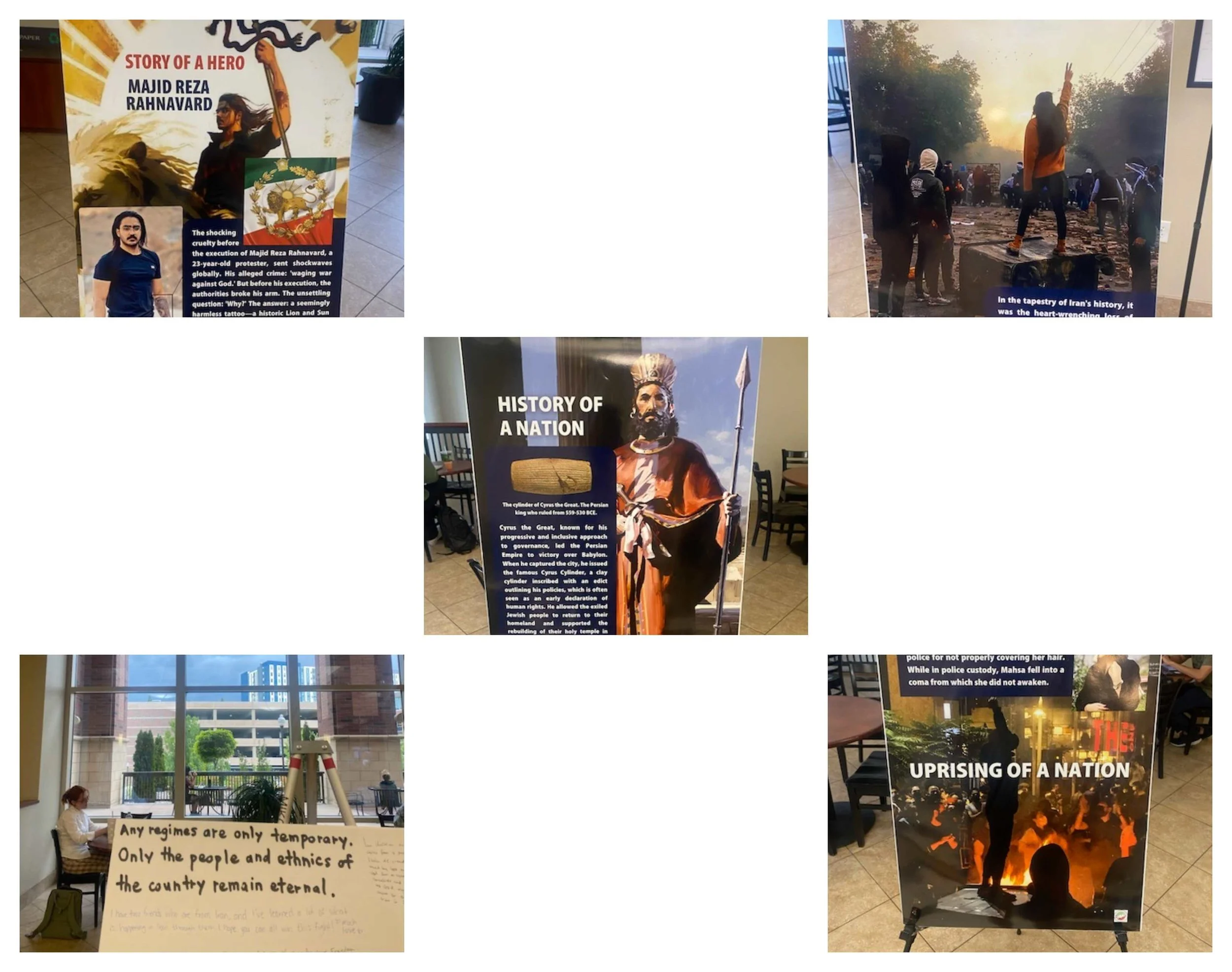Parts of an exhibit at UNR marking one year since Mahsa Amini, died in a hospital in Tehran, Iran, under suspicious circumstances, after being arrested by the country’s religious morality police for not properly wearing a hijab.
For over four decades, Iran has been mired in constant turmoil, with the mere mention of the country's name evoking feelings of despair, frustration and heartbreak. A nation once thriving with a rich history and culture now finds itself grappling with a reality marked by suppression.
A pivotal moment arrived just a year ago when the Islamic Republic claimed the life of Mahsa Amini, a tragic event stemming from her opposition to covering her hair correctly.
Mahsa's death became a catalyst, breathing life into a flicker of hope. It rallied millions of Iranians, igniting a collective uprising against a regime that not only oppresses women but men and also stands in opposition to the very essence of life, freedom and prosperity. This call for change resonated beyond gender lines, uniting both men and women under the banners of "Woman, life, freedom!" and "Man, homeland, prosperity!”
The anniversary of Mahsa's death holds profound significance, symbolizing a turning point in Iran's recent history. The whole nation inside and outside of the country stood together, not giving in to the regime's pressure.
Despite threats, arrests, and even executions, the people refused to yield. Today, it's not just the elite of society who are aware, but the entire nation understands how the Islamic regime seized control of the country 44 years ago through violence, suppressing opposition groups and manipulating the media. Their unity serves as a beacon of hope, an unwavering resolve to reclaim their homeland.
Iran, for many, is more than just a place on the map. It is a birthplace, a home, and a family, where cherished childhood friendships were formed. Yet, for some, circumstances forced departure, leaving behind a physical place but carrying the essence of homeland within their very beings.
Being Iranian is more than a mere regional identity; it is an integral part of one's broader sense of self and ethnic heritage. Today, there is a growing awareness of the profound importance of preserving this cultural legacy. In the face of adversity, the Iranian spirit endures, finding strength in unity and resilience, determined to shape a future where the echoes of despair are replaced by a chorus of hope and change.
In reflecting on Cyrus the Great's legacy from 2500 years ago, the Cyrus Cylinder, where he advocated for principles of religious freedom and the return of displaced peoples, we are reminded of our shared ancestry. As descendants of Cyrus, we carry the torch of our cultural heritage and the promise of reclaiming our homeland. With steadfast determination, we look forward to the day when we can return to our roots, rebuilding not just physical structures, but the very essence of our collective identity.
